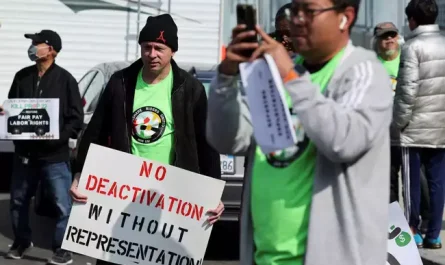When a loved one passes away, planning a funeral becomes one of the most delicate and emotional responsibilities for a family. Amidst the grief, practical questions often arise—one of the most common being: How long after death should a funeral take place?
While there are general timelines observed across many cultures, the answer is never universal. Funeral timing depends on a mix of factors, including religious traditions, cultural expectations, legal requirements, and the personal needs of the family. Understanding these considerations can help families make compassionate and informed choices during one of life’s most difficult moments.
Standard Funeral Timelines
In many Western countries, funerals are usually held within three to seven days after death. This period allows for:
- The completion of necessary preparations, such as embalming or cremation arrangements.
- Time for family and friends to gather, often from different locations.
- Coordination of service details, including the venue, clergy, or celebrant.
That said, some funerals happen much sooner, especially in religious traditions that require quick burial. On the other hand, delays may be necessary due to legal issues, family circumstances, or logistical challenges.
Factors That Influence Funeral Timing
1. Religious and Cultural Traditions
Faith and culture play perhaps the most decisive role in funeral timelines:
- Judaism: Burial typically takes place within 24–48 hours, honoring the belief that delays show disrespect to the deceased.
- Islam: Similarly, Islamic tradition calls for burial within 24 hours, with embalming and cremation generally prohibited.
- Christianity: Most denominations allow flexibility, with funerals usually held within 3–5 days, though timing often depends on family preference.
- Hinduism: Cremation is preferred, typically within 24–48 hours, followed by multi-day rituals and prayers.
These customs deeply influence families who wish to honor tradition while also balancing practical concerns.
2. Legal and Administrative Requirements
Certain situations can extend the timeline. If a death requires an autopsy, investigation, or additional documentation, arrangements may be delayed until authorities release the body. Similarly, transporting remains across borders for an international funeral can add days or even weeks to the process.
3. Embalming and Preservation
Families who wish to hold a viewing or open-casket service often choose embalming, which slows decomposition and provides more scheduling flexibility. In regions where embalming is uncommon or not required, funerals may occur much sooner. Cremation, on the other hand, typically offers more leeway, as the service can be held days, weeks, or even months later.
4. Family Preferences and Practical Needs
Sometimes, the delay has nothing to do with tradition or law but simply with family logistics. Loved ones may need time to travel, adjust work commitments, or gather during a season when travel is difficult. In these cases, families may choose an immediate burial or cremation, followed by a memorial service or celebration of life at a later date.
5. Seasonal and Environmental Considerations
Geography and climate can also shape funeral timing. In regions with extreme heat, burials may happen quickly to avoid complications. In colder climates, frozen ground can delay burials until conditions improve.
Options for Delayed Services
Although most funerals take place within a week of death, delayed services are not uncommon.
- Cremation with a Later Memorial: Families often cremate the remains promptly, then schedule a memorial weeks or months later, providing more time for planning and gathering.
- Celebration of Life: Some families prefer to wait until emotions settle before holding a larger, more uplifting ceremony that highlights the person’s legacy and impact.
Conclusion
The question, “How long after death is a funeral typically held?” has no single correct answer. While tradition and circumstance provide guidelines—ranging from 24 hours to several weeks—the most important factor is that the funeral honors the deceased while supporting the grieving family.
Ultimately, the right time for a funeral is the one that feels respectful, meaningful, and appropriate for those left behind. By balancing religious customs, legal requirements, and personal needs, families can create a farewell that offers comfort, dignity, and peace.



